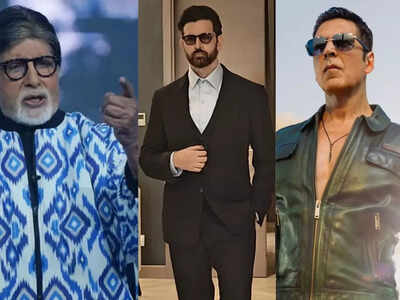Key Takeaways
- Akshay Kumar joins Aishwarya Rai, Abhishek Bachchan, and other Bollywood stars in seeking legal protection against deepfakes and AI misuse
- Courts are granting “John Doe injunctions” to prevent unauthorized use of celebrity images, voices, and personas
- India lacks specific AI legislation despite growing threats from voice cloning and manipulated content
Bollywood celebrities are taking unprecedented legal action to protect their digital identities from deepfakes and AI-generated content. Akshay Kumar became the latest star to approach the Bombay High Court, seeking protection against the misuse of his image, voice, and persona across social media platforms.
Justice Arif Doctor heard Kumar’s petition and reserved the order, indicating the court would likely grant interim protection. The actor joins a growing list of celebrities including Aishwarya Rai Bachchan, Abhishek Bachchan, Amitabh Bachchan, Hrithik Roshan, Karan Johar, and Asha Bhosle who have secured similar court orders.
Scale of Deepfake Abuse: From Fake Trailers to Obscene Content
The violations reveal how AI technology is being weaponized against public figures. Akshay Kumar’s case highlights alarming examples including a viral fake trailer showing him as Uttar Pradesh Chief Minister Yogi Adityanath in a non-existent film, which garnered nearly 20 lakh views before removal.
Another manipulated video depicted him making controversial remarks about Rishi Valmiki, triggering protests across multiple regions. His senior advocate Birendra Saraf told the court that AI platforms now offer an “AI Akshay Kumar V2 Voice” tool that can generate speech in the actor’s exact tone from any text input.
The Bachchan family faces even more disturbing violations. Abhishek and Aishwarya Rai Bachchan filed a 1,500-page lawsuit against YouTube documenting “sexually explicit” AI-manipulated videos. The Delhi High Court has already ordered removal of 518 links, with the couple seeking $450,000 in damages.
What Are Personality Rights?
Personality rights give individuals legal control over how their identity—name, image, voice, signature, and likeness—is used publicly or commercially. These rights have two key components:
- Right to Publicity: Prevents commercial misuse without consent
- Right to Privacy: Guards against deepfakes, morphed visuals, and fake endorsements
The Delhi High Court has defined these rights as entitling individuals “to control and protect the exploitation of one’s image, name, likeness or other attributes of their personality, in addition to the commercial gains that can be derived from the same.”
Court Responses and Legal Gaps
Courts have been proactive despite the absence of specific AI legislation. The Delhi High Court granted relief to Hrithik Roshan, ordering removal of commercial exploitation and AI content while protecting non-commercial fan pages.
Justice Manmeet Pritam Singh Arora observed: “We can’t have fanclubs taken down at ex parte stage. Instagram use is not only commercial. People do it for fun and recreation.”
Most celebrities seek “John Doe injunctions”—court orders against unknown individuals—crucial because AI content often comes from anonymous sources. These orders restrain social media platforms from hosting unauthorized content.
Why the Legal Avalanche Now?
Several factors created this perfect storm:
- AI technology that once required expertise is now accessible to anyone with a smartphone
- India’s massive digital presence—over 600 million YouTube users—provides infrastructure for exploitation
- Financial incentives through viral fake content and fraudulent endorsements
The Bachchans’ lawsuit raises a critical new concern: they’re demanding YouTube prevent uploaded videos from training AI platforms like OpenAI and Meta without consent.
Anil Kapoor’s 2023 case earned him a spot on Time magazine’s 100 Most Influential People in AI list, making him India’s equivalent of Scarlett Johansson, who similarly fought OpenAI over voice imitation.
While courts have been responsive, India lacks AI-specific legislation addressing deepfakes and digital impersonation. There’s growing consensus that comprehensive laws are needed covering not just celebrities but ordinary citizens.




